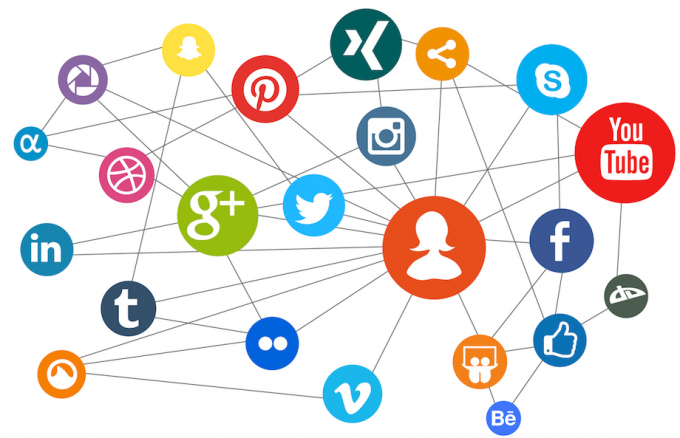One of the greatest myths of modern Western society is based on individual freedom of conscience and thought, which was offered to each of its inhabitants as a supreme value of the democracies of our times. It was the calling card of the “first world”, the world of the free, the world of the privileged.
In the times of perestroika the world seduced us with the phrase of the English writer Ewelyn Holl, who said “I do not share your ideas, but I am ready to die for your right to express them”, and perhaps to ensure the effectiveness of these words, they are usually attributed to Voltaire. Raised by the Soviet system and complaining about excessive state censorship, we nevertheless learned to believe in the printed word.
We thought we knew how to read between the lines, but we had no elements to understand the logic of Western propaganda and easily fell into the trap of the ‘freedom of thought’ of the press and culture which, handled by the best experts, turned out to be the perfect disguise for the thousand shades of a single colour, which are always defined by the same power. Coming out of another discursive logic we simply had no way of deciphering it.
It is curious that we fell in love with the story of the freedom of ideas, precisely at the time when thought still represented a value and when in the whole world there were no more critical and analytical spaces than the Soviet kitchens, where until late at night our doubts and certainties were cooked with a thousand seasonings, given to them by the good education we had and a spicy taste of forbidden fruit. We would spend whole nights there, smoking, drinking tea, coffee, vodka, or whatever, discussing among friends about the human and the divine. Yes, in the institutional part of our lives there was political censorship. There were also restrictions on travel outside the country. But access to culture, to knowledge, and to the history of humanity was so broad that we all travelled the world-devouring the best books by great authors and traveling back in time, curious about the history of mankind and we knew that, together with other peoples of the planet, we were about to set out to conquer the distant stars.
The freedoms we were traded for in our dreams turned out to be necklaces of glass, as happened to the innocent aborigines in the face of the conquerors.
They offered the world, aimlessly and without a minimum educational basis, an ocean of information, setting us a trap where any thought drowns long before it learns to swim. The Nobodies are no longer willing to fight ideas with ideas. They are silenced, cancelled out, and dissolved in noise. A global dictatorship of commonplaces in discourse and of ‘non-places’ in public space is emerging as clean, aseptic and futuristic, stripped of culture, memory, past, learning, and of the human. Humanity in this world is superfluous.
To ensure the triumph of the transhuman machine, in the best Elon Musk style, full of chips, dollars and ambitions, the system, preparing for its final claw, turns its promises 180 degrees and begins to prohibit us from everything that so recently seduced us. The social networks, advertised as a space of unlimited freedom, of encounters between different cultures, are subjected to total political, cultural and aesthetic censorship, on the understanding that all three are basically the same thing: ideology. I remember that only a couple of years ago, during the mass protests in the streets of Colombia, when the democratically elected authorities brutally repressed the demonstrators, torturing, murdering and disappearing, hundreds of images recorded by the victims’ comrades in the streets, did not last on YouTube for more than 10 minutes before being deleted. And all the while, the world press continued its eternal preoccupation with democracies in Cuba, Venezuela and Belarus. We still found it astonishing, just as we were amazed by Twitter’s blocking of Donald Trump and his supporters. Not that we are admirers of the former US president, but it did not match our rudimentary beliefs about freedom of expression, especially in a country that, under the threat of economic and military arms, demands it of the whole world. The armed conflict in Ukraine revealed everything.
In today’s civilised world, it is forbidden to think. Only one point of view is accepted, only one kind of image is projected, largely “fake news”, which is the least of it, and anyone who tries to question the superior truths dictated by the owners of the big media will at best only lose their jobs as journalists and thus be cancelled.
Views that are not explicitly anti-Russian are totally eliminated from the media space. Criticising NATO these days is like questioning the existence of God in the time of the Inquisition. Bonfires for heretics are burning on every screen on the planet.
You can be moved by Ukrainian civilian casualties and question war as a method, but if you dare to acknowledge the existence of Nazis in the Ukrainian army, you automatically become an agent of Putin, with no right of reply or rehabilitation.
The powerful international media, which only a few years ago could be considered serious and respectable, in a matter of months transformed into a kind of collective Goebbels, which, supported by the latest technologies of image and psychological studies, become a real weapon of mass destruction of consciousness without precedent.
In more and more countries, as part of your CV, you are asked for your social networks. Before giving your opinion, you should know that this can have a cost. As happens in Mexico or Colombia, where drug trafficking mafias offer newly elected politicians the choice between lead or silver, so the global tyranny of the media demands complicity or silence from journalists.










